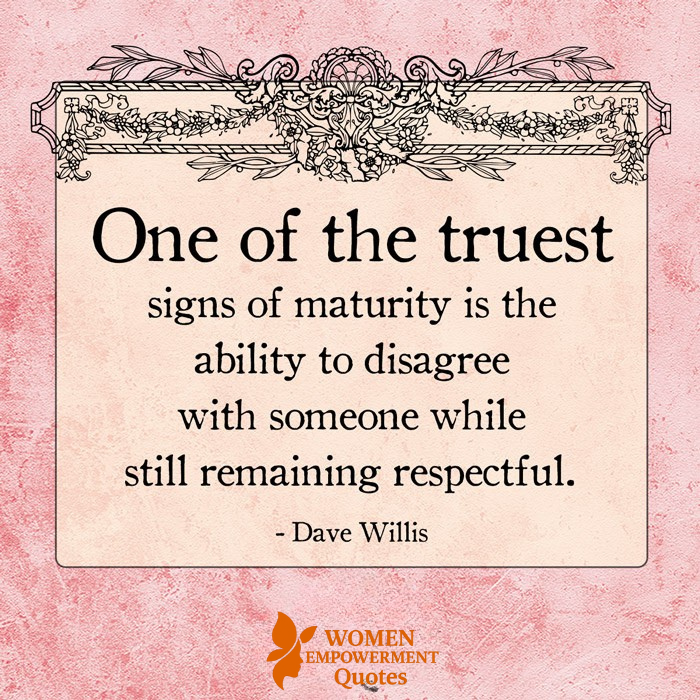
The Quiet Power of Respectful Disagreement
One of the most revealing signs of maturity isn’t how loudly we speak our minds, but how gracefully we handle disagreement. It takes strength not to shout, not to shame, but to listen—and still stand firm in what we believe. As Dave Willis reminds us, true maturity is seen in how we treat others when we don’t see eye to eye.
Disagreement is a natural part of life. Each of us carries a unique story—shaped by different values, cultures, and convictions. Mature people don’t view differences as threats. Instead, they see them as doorways—to deeper understanding, to growth, and to connection. They listen with the intent to understand, not just to reply.
Respect is the foundation here. It doesn’t mean agreeing—it means recognizing another’s dignity, even when views clash. Mature individuals avoid insults or condescension. They focus on ideas, not egos. They know that true dialogue isn’t about winning, but learning.
Emotional maturity also means controlling how we respond when tensions rise. Anger is easy—anyone can react. But choosing calm? That’s wisdom. That’s strength. Mature people think before they speak. They know that words can wound—and that silence, too, can be powerful.
Perhaps most importantly, maturity means preserving relationships even amid disagreement. You don’t have to see the world the same way to walk beside someone with kindness. Mature hearts understand that unity isn’t uniformity—and that love can still thrive in difference.
Creating Space for Mutual Growth
Respectful disagreement isn’t just an individual trait—it’s a culture we can build together. It begins with listening—truly listening. Letting someone finish their thoughts without interruption. Trying to see what they see, even if we don’t agree. That act alone can transform a conversation into a bridge.
We also need humility. None of us knows everything. When we accept that our view isn’t the only view, we become open to learning—from others, from experience, and from the unexpected wisdom hidden in unfamiliar perspectives.
Of course, we must also examine our own biases. What assumptions do we carry into the conversation? Are we hearing someone—or projecting something onto them? True maturity means reflecting on our own limitations and making room for growth.
Clear boundaries help, too. When we commit to no insults, no interruptions, no shaming—we create a safe space where dialogue can flourish. Respect then becomes not just an ideal, but a shared practice.
Final Reflection
To disagree with grace is a high form of emotional intelligence. It requires empathy, humility, and courage. But when we embrace this path, we don’t just become better communicators—we become better people. And in doing so, we help shape a more compassionate, understanding world.
Selected Quotes to Reflect On
“Respect for ourselves guides our morals, respect for others guides our manners.” – Laurence Sterne
“At the core of all well-founded respect lies some form of covenant.” – W.G. Sebald
“When you meet anyone, remember it is a holy encounter.” – Isaac Bashevis Singer